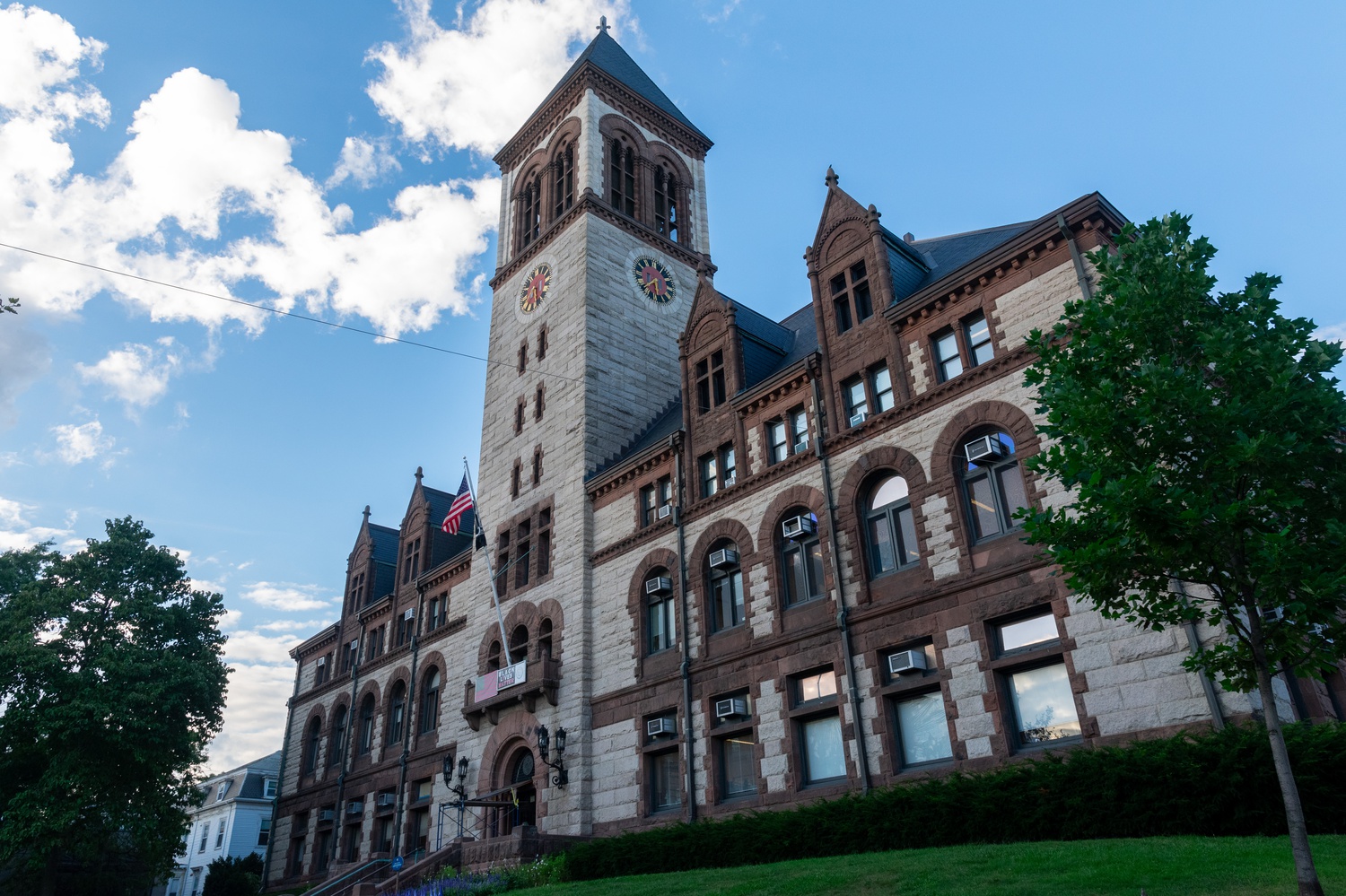
News
Summers Will Not Finish Semester of Teaching as Harvard Investigates Epstein Ties

News
Harvard College Students Report Favoring Divestment from Israel in HUA Survey

News
‘He Should Resign’: Harvard Undergrads Take Hard Line Against Summers Over Epstein Scandal

News
Harvard To Launch New Investigation Into Epstein’s Ties to Summers, Other University Affiliates

News
Harvard Students To Vote on Divestment From Israel in Inaugural HUA Election Survey
Despite Outcry, Cambridge City Council Again Rejects Significant Changes to Affordable Housing Amendments

Cambridge’s Monday City Council meeting proceeded in a familiar fashion: with a public comment portion marked by outcry over a controversial proposed expansion to the Affordable Housing Overlay and a failed effort to curtail the AHO amendments.
Councilors Patricia M. “Patty” Nolan ’80, Paul F. Toner, and Dennis J. Carlone also proposed alternative language to a set of controversial amendments to the AHO raising building height maximums on affordable housing developments. The alternative language would retain current AHO setback standards and use a different formula to calculate height limits.
A set of nearly identical changes — put forward by Nolan and Toner — failed 6-3 in a Council vote last month.
Calling setback requirements “a safety net for street trees,” Nolan also warned about the amendments’ expansion of increased height limits to new areas of Cambridge.
Nolan criticized the proposed AHO amendments for “pretty dramatically” changing height limits throughout the entire city — “something most people are even aware of.”
Councilor Quinton Y. Zondervan defended the amendments’ original building guidelines.
“We went through a very careful process to figure out what would be appropriate heights,” he said. “And I think we came up with the right answer.”
Councilor Marc C. McGovern, who also opposed the changes to the amendments, said that the potential aesthetic problems of taller buildings pale in comparison to the city’s housing crisis.
“The people who are gonna notice the difference between seven stories and nine stories are the people who aren’t gonna get to live in the units that would have been built at nine stories,” he said. “I think cities are vibrant things, I think they’re living things, I think they grow and change to meet the needs of the city, and we have a housing crisis.”
The Council considered three proposed amendments by the Community Development Department modifying language in the AHO. McGovern moved to substitute the language in the overlay with the language provided by the CDD.
Only Councilor Dennis J. Carlone opposed the motion, making the vote on the substitution 8-1.
In addition to discussing the AHO, the Council unanimously voted to pass a policy order requesting City Manager Yi-An Huang ’05 to seek greater collaboration on housing issues from Cambridge institutions and corporations with “substantial financial means” that have a significant impact on the city’s housing crisis.
The order calls on city staff to identify how these institutions — including Harvard, MIT, and Cambridge’s major life sciences or “high tech” corporations — can do more in providing affordable housing development.
Specifically, the policy order references “providing additional funds to the Affordable Housing Trust or by developing affordable/mixed-income housing” as possible ways in which these institutions can help alleviate Cambridge’s housing crisis.
Carlone pointed out that in other “high-tech cities” such as Seattle and San Francisco, “large high-tech companies that dominate those cities build housing for their own people.”
“It dawned on a few of us that because of these pressures, commercial and academic expansion of students, and less than of those students have housing on campus,” Carlone said. “It creates an issue.”
Siddiqui mentioned a conversation she had regarding Harvard’s “PILOT situation.” Harvard makes payments in lieu of taxes to the governments of Cambridge and Boston and is set to negotiate a new PILOT deal with Cambridge with the current agreement set to expire next year.
“I’m sure there’ll be some ongoing discussions the next few months,” Siddiqui said.
Harvard has fallen short of its financial contributions as part of the Payment in Lieu of Taxes program to the city of Boston for 11 consecutive years.
The Council also voted unanimously to pass an amended policy order, increasing off-leash hours for dogs at Joan Lorentz Park from 8-10 a.m. to 6-10 a.m.
McGovern proposed two amendments to a policy order on changing off-leash hours at Joan Lorentz Park.
The first amendment explicitly named local organizations such as the Mid-Cambridge Neighborhood Association, the Neighborhood Dog Association, and the Friends of Joan Lorentz Park. The second amendment expanded off-leash hours to four hours, as opposed to simply shifting the hours to 6-8 a.m. Both amendments had passed 9-0.
The Council will reconvene Oct. 16 for their next regular meeting.
—Staff writer Jina H. Choe can be reached at jina.choe@thecrimson.com.
—Staff writer Samuel P. Goldston can be reached at samuel.goldston@thecrimson.com.
Want to keep up with breaking news? Subscribe to our email newsletter.
